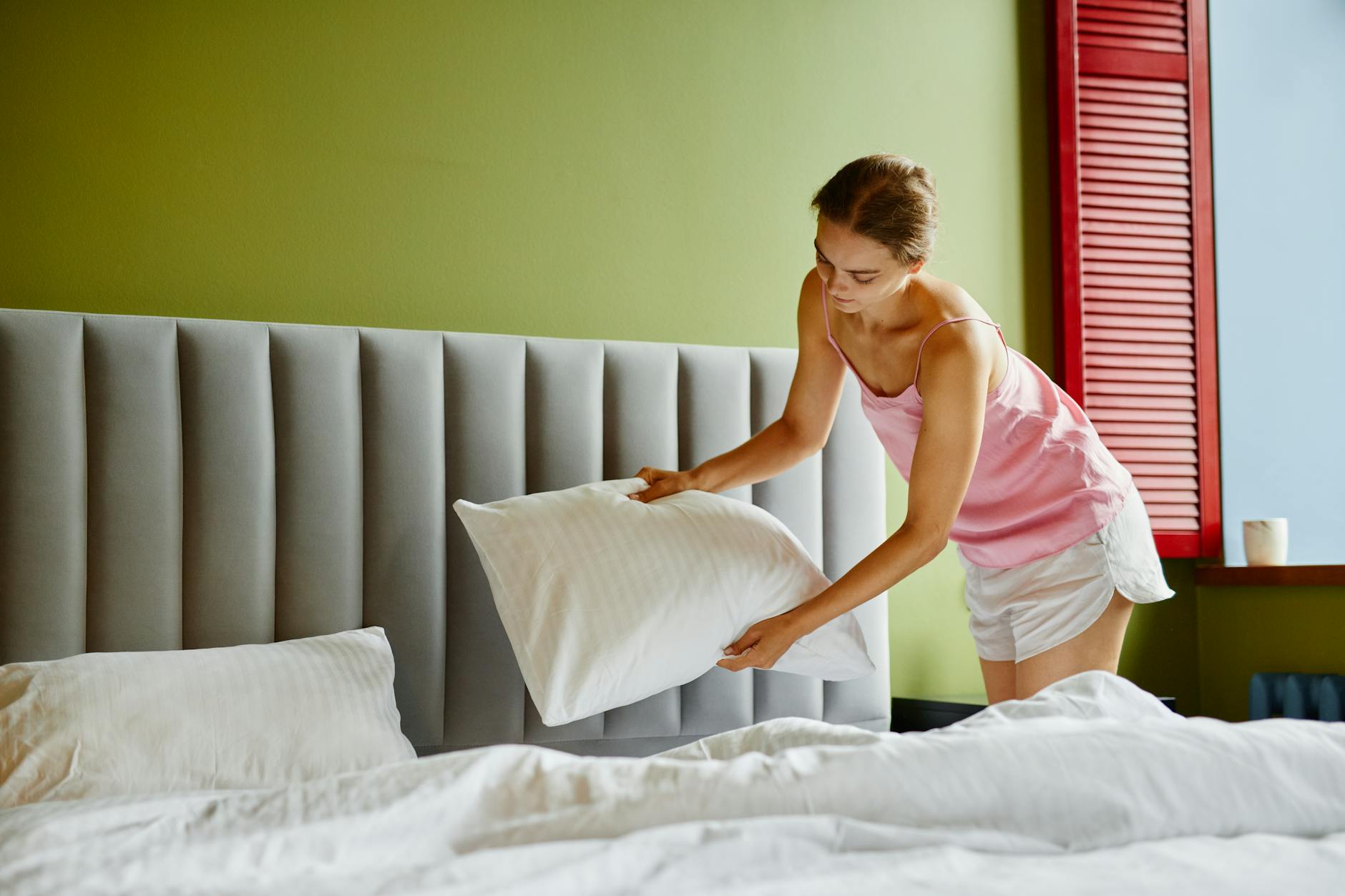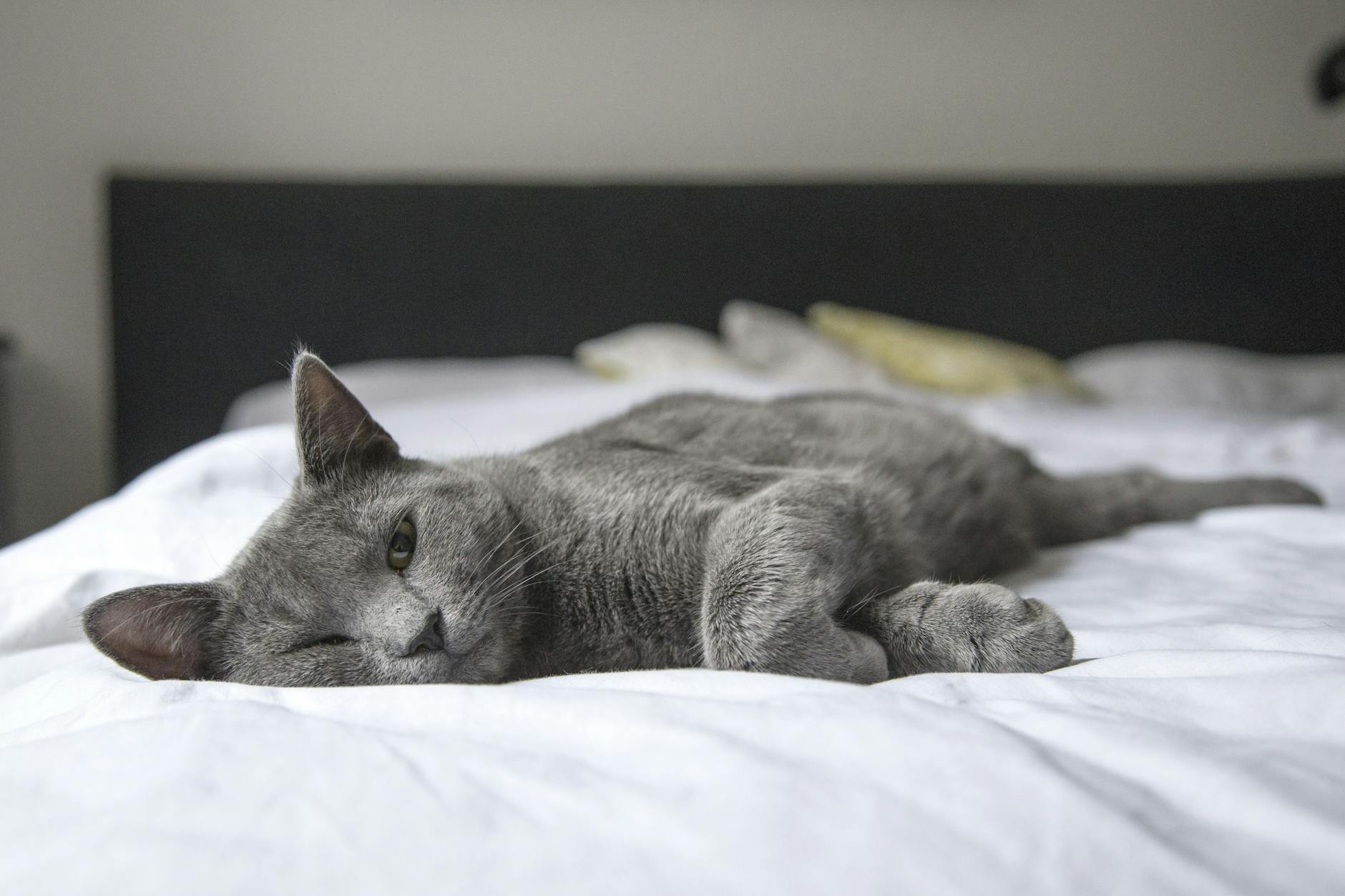Physical Address
304 North Cardinal St.
Dorchester Center, MA 02124
Physical Address
304 North Cardinal St.
Dorchester Center, MA 02124


Are you tossing and turning all night, struggling to get the rest you desperately need? You’re not alone. In today’s fast-paced world, quality sleep has become a luxury that many of us can’t seem to afford. But what if we told you that improving your sleep could be the key to unlocking better health, increased fitness, and overall well-being? How To Improve Sleep
The consequences of poor sleep are far-reaching, affecting everything from your mood and productivity to your physical performance and long-term health. Chronic sleep deprivation can lead to weight gain, weakened immunity, and even increased risk of serious conditions like heart disease and diabetes. But here’s the good news: you have the power to transform your sleep and revolutionize your life.
In this comprehensive guide, we’ll explore seven essential strategies to help you achieve the restful, rejuvenating sleep you’ve been dreaming of. From creating the perfect sleep environment to managing stress and leveraging cutting-edge technology, we’ll cover everything you need to know to wake up feeling refreshed, energized, and ready to conquer your day. So, are you ready to embark on a journey towards better sleep and a healthier, fitter you? Let’s dive in! 🏊♂️💤

Quality sleep plays a crucial role in maintaining and improving physical health. Here’s how sleep affects various aspects of our physical well-being:
| Sleep Duration | Impact on Physical Health |
|---|---|
| Less than 6 hours | Increased risk of illness, weight gain, and cardiovascular issues |
| 7-9 hours | Optimal immune function, hormonal balance, and heart health |
| More than 9 hours | Potential negative effects on metabolism and energy levels |
Consistent, high-quality sleep helps regulate blood pressure, reduces inflammation, and supports the body’s natural healing processes. It also aids in maintaining a healthy metabolism, which is essential for weight management and overall physical fitness.
Sleep is intrinsically linked to mental health and cognitive function. Here are some key ways sleep impacts our mental well-being:
Adequate sleep helps balance neurotransmitters in the brain, promoting emotional stability and reducing the risk of mental health issues such as anxiety and depression. It also enhances cognitive functions like memory consolidation, problem-solving, and decision-making skills.
For fitness enthusiasts and athletes, sleep is a critical component of training and recovery. Quality sleep contributes to:
Studies have shown that athletes who consistently get 7-9 hours of sleep per night experience significant improvements in their performance compared to those who are sleep-deprived. Adequate sleep allows the body to repair muscle tissue, replenish energy stores, and optimize hormone levels essential for athletic performance.
Now that we understand the importance of quality sleep for our overall health and fitness, let’s explore how to create an optimal sleep environment to support these benefits.

The ideal room temperature for optimal sleep is between 60-67°F (15-19°C). This range promotes the natural drop in core body temperature that occurs during sleep, enhancing sleep quality.
| Temperature | Effect on Sleep |
|---|---|
| Too warm (>75°F) | Disrupts sleep, increases restlessness |
| Ideal (60-67°F) | Promotes deep, restful sleep |
| Too cold (<54°F) | May cause discomfort and wake you up |
To maintain the ideal temperature:
Light plays a crucial role in regulating our circadian rhythm. To create an optimal sleep environment:
Consider using a sleep mask if complete darkness is challenging to achieve.
Unwanted noise can significantly disrupt sleep. Implement these strategies:
Your bedding can make or break your sleep quality. Choose:
Remember, personal preferences vary, so experiment to find what works best for you. With these optimizations, you’ll create a sleep sanctuary that promotes restorative rest, enhancing your overall health and fitness.

Consistency is key when it comes to improving your sleep quality. By setting regular bedtime and wake-up times, you can align your body’s internal clock with your daily routine. This synchronization helps regulate your circadian rhythm, making it easier to fall asleep and wake up naturally.
Tips for establishing consistent sleep times:
| Benefits of Consistent Sleep Times | Impact on Health and Fitness |
|---|---|
| Improved sleep quality | Better recovery and muscle growth |
| Enhanced mood and energy levels | Increased motivation for workouts |
| Regulated hormone production | Optimized metabolism and weight management |
| Better cognitive function | Improved athletic performance |
Creating a calming pre-sleep ritual signals to your body that it’s time to wind down. This routine helps transition from the day’s activities to a restful state, promoting better sleep quality and duration.
Effective bedtime routine components:
While it’s tempting to sleep in on weekends, maintaining a consistent sleep schedule throughout the week is crucial for optimal health and fitness. Irregular weekend sleep patterns can disrupt your circadian rhythm, leading to “social jet lag” and decreased performance.
Strategies for weekend sleep consistency:
By establishing a consistent sleep schedule, you’ll experience improved energy levels, enhanced recovery, and better overall fitness results. Remember, quality sleep is a crucial component of your health and fitness journey.

Regular exercise is crucial for improving sleep quality, but timing is key. Aim to complete your workouts at least 3 hours before bedtime to allow your body temperature and heart rate to return to normal. Morning or early afternoon exercises are ideal for most people.
| Time of Day | Benefits for Sleep |
|---|---|
| Morning | Boosts metabolism, enhances alertness |
| Afternoon | Improves physical performance, aids sleep |
| Evening | May disrupt sleep if too close to bedtime |
Exposure to natural sunlight helps regulate your circadian rhythm, improving sleep quality. Aim for at least 30 minutes of sunlight exposure daily, preferably in the morning. This can:
What you eat during the day can significantly impact your sleep quality. Consider these tips:
Both caffeine and alcohol can disrupt sleep patterns. To optimize your sleep:
Now that we’ve covered how to optimize your daytime habits for better sleep, let’s explore how managing stress and anxiety can further improve your sleep quality.

Incorporating meditation and mindfulness into your daily routine can significantly reduce stress and anxiety, leading to improved sleep quality. Start with just 5-10 minutes a day, gradually increasing the duration as you become more comfortable. Here are some effective techniques:
| Technique | Description | Benefits |
|---|---|---|
| Body scan | Focus on each part of your body, releasing tension | Reduces physical stress |
| Guided imagery | Visualize peaceful scenes or situations | Calms the mind |
| Loving-kindness | Direct positive thoughts towards yourself and others | Promotes emotional well-being |
| Mindful breathing | Focus on your breath, bringing attention back when it wanders | Anchors you to the present moment |
Writing down your thoughts and concerns before sleep can help clear your mind and reduce anxiety. Consider the following journaling prompts:
Practicing deep breathing exercises can activate your body’s relaxation response, preparing you for a restful night’s sleep. Try these techniques:
Incorporating these stress and anxiety management techniques into your nightly routine can significantly improve your sleep quality, ultimately enhancing your overall health and fitness. As you master these practices, you’ll find yourself more relaxed and better prepared for restful sleep.

Sleep tracking technology has revolutionized the way we monitor and improve our sleep patterns. These tools provide valuable insights into your sleep cycles, duration, and quality. Here’s a comparison of popular sleep tracking options:
| App/Device | Features | Pros | Cons |
|---|---|---|---|
| Fitbit | Sleep stages, heart rate monitoring | Comprehensive data, wearable | Subscription required for advanced features |
| Sleep Cycle | Smart alarm, sound recording | Non-wearable, easy to use | Less accurate than wearable devices |
| Oura Ring | Detailed sleep analysis, body temperature | Comfortable, long battery life | Expensive, limited smartwatch features |
By using these tools, you can identify sleep patterns and make informed decisions to enhance your sleep quality, ultimately boosting your fitness performance.
White noise and nature sound apps can significantly improve sleep quality by masking disruptive noises and creating a soothing environment. Some benefits include:
Popular apps like Calm, Headspace, and White Noise Lite offer a variety of sounds to choose from, including:
Experiment with different sounds to find what works best for your sleep environment and preferences.
Exposure to blue light from electronic devices can disrupt your natural sleep-wake cycle. Blue light filtering tools can help mitigate this issue:
These tools work by reducing the amount of blue light emitted from screens, especially in the evening hours. By incorporating blue light filtering into your routine, you can improve your sleep quality and support your overall fitness goals.
Now that we’ve explored how technology can enhance your sleep, let’s address some common sleep disruptors that might be affecting your rest.

Partner snoring can significantly disrupt your sleep quality, impacting your health and fitness goals. To address this common issue:
Sleep apnea is a serious condition that can severely impact sleep quality and overall health. Consider these steps:
| Sleep Apnea Management | Benefits |
|---|---|
| CPAP therapy | Improves oxygen levels, reduces daytime fatigue |
| Weight loss | Decreases pressure on airways, reduces symptoms |
| Positional therapy | Helps maintain optimal sleeping position |
Restless leg syndrome (RLS) can make it difficult to fall asleep and stay asleep. Try these strategies:
Insomnia can severely impact your fitness goals by hindering recovery and affecting energy levels. Address it by:
By addressing these common sleep disruptors, you can significantly improve your sleep quality, leading to better health and fitness outcomes. Remember, consistent quality sleep is crucial for muscle recovery, hormone regulation, and overall athletic performance.

Quality sleep is the cornerstone of good health and fitness. By implementing the strategies discussed in this post, you can significantly improve your sleep quality and reap the numerous benefits it offers. From creating an optimal sleep environment to managing stress and leveraging technology, each step plays a crucial role in enhancing your overall sleep experience.
Remember, improving your sleep is a journey that requires patience and consistency. Start by incorporating one or two suggestions into your routine and gradually build upon them. As you prioritize your sleep, you’ll likely notice improvements in your physical health, mental clarity, and overall well-being. Make quality sleep a non-negotiable part of your lifestyle, and watch as it transforms your health and fitness journey for the better.
To know more about Organic Health Products Please Visit Link